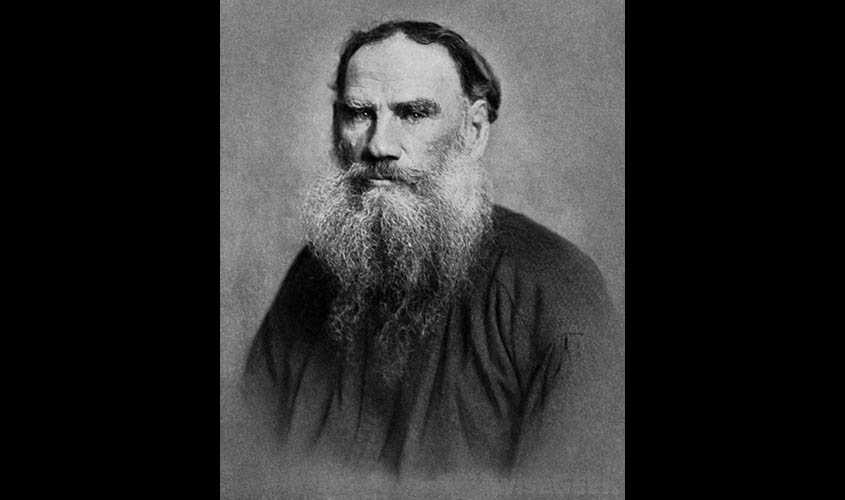The greatest novelist of all time noted the worth of a relatively unknown Gandhi and wrote at length to him.
The last place one would expect to hear the name of Count Leo Tolstoy (1828-1910) is an Indian High Court. This actually happened on 29 August in Mumbai. Justice Sarang Kotwal was reported to have asked an activist (politer name for a non-practicing semi Maoist) called Vernon Gonsalves to explain why he kept “objectionable material” like Leo Tolstoy’s War and Peace. Here we have a not so benign sample of fake news. The fact was that Justice Kotwal had referred to another book of the same title by an Indian author. The next day he to a considerable extent put the record straight. But the damage had been done. For half a day he was made fun of, called other non-flattering names. Except for ignoramuses.
I will now write about the Tolstoy-Gandhi correspondence. It is well known that a Gandhi in his early thirties had established a Tolstoy farm in the Transvaal in South Africa. Gandhiji in his early thirties read several books by Tolstoy. But the book that made a deep and lasting impact on him was Leo Tolstoy’s The Kingdom of God is within You. This he read in Pretoria in 1894, when he was 25 years old.

In October 1909, Gandhiji wrote to Tolstoy from London in some detail about the conditions of Indians in the Transvaal, and asked permission to publish a letter written by Tolstoy to a man called Tarak Nath Das, who had written that passive resistance was not effective in dealing with the British in India. Tolstoy replied on 8 October, “I have just received your most interesting letter which has given me great pleasure. God helps our dear brothers and co-workers in the Transvaal. The same struggle of the tender against the harsh, of meekness and love against pride and violence, is every year making itself more and more felt here among us also, especially in one of the very sharpest of the conflicts of the religious law with the worldly laws—in refusing military service—such refusals are becoming even more and more frequent.”
Two months and 13 days before his death Tolstoy wrote to Gandhiji on 7 September 1910: “I got your journal Indian Opinion and was glad to learn that all that was written there about those who practice non-resistance. I also wanted to tell you the thoughts that reading it aroused in me.” “The longer I live, and especially now when I feel keenly the nearness of death, I want to tell others what I feel so particularly keenly about, and what, and what in my opinion is of enormous importance, namely what is called non-resistance, but what is essentially nothing other than the teaching of love undistorted by false interpretations. The fact that love, i.e. the striving of human souls towards unity and the activity resulting from such striving, is the highest and only law of human life is felt and known by every person in the depth of his soul (as we see most clearly of all with children)—known by him until he is ensured by the false teachings of the world this law has been proclaimed by all the world’s sages, Indian, Chinese, Jewish, Greek and Roman… He knows as every reasonable person is bound to know, that the use of violence is incompatible with love as the basis of law of life, that once violence is tolerated in any case whatsoever, the inadequacy of the law of love is recognised and therefore the law itself is repudiated. The whole of Christian Civilization, so brilliant on the surface, grew upon this obvious, strange, sometimes conscious but for most of the part uncurious misunderstanding and contradiction.” Tolstoy continues, “Socialism, communism, anarchism, the Salvation Army, the growth of crime, unemployment among the population, the growth of the insane luxury of the rich and destitution of the poor, the terrible growth of the number of suicides—all these things are signs of this internal contradiction… And so your work in the Transvaal, at the other end of the World as it seems to us, is the most central and most important of all tasks now being done in the world…” Gandhi received Tolstoy’s letter six days after the Count’s death.
Here was the greatest novelist of all time taking time to write at length to a relatively unknown Mohandas Karamchand Gandhi. Tolstoy was amongst the first truly great human beings to see and note the worth and future greatness of Gandhiji.
The other Tolstoy novel, Anna Karenina is also a masterpiece. The tragedy of Anna is so terrible and moving that only a heartless reader would read it without shedding tears.

